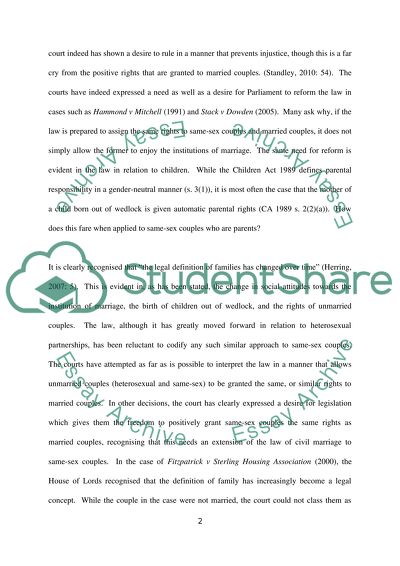Cite this document
(“On the debate surrounding legislation for same-sex couples Essay”, n.d.)
Retrieved from https://studentshare.org/law/1393504-family-law-see-instructions-for-full-title-please
Retrieved from https://studentshare.org/law/1393504-family-law-see-instructions-for-full-title-please
(On the Debate Surrounding Legislation for Same-Sex Couples Essay)
https://studentshare.org/law/1393504-family-law-see-instructions-for-full-title-please.
https://studentshare.org/law/1393504-family-law-see-instructions-for-full-title-please.
“On the Debate Surrounding Legislation for Same-Sex Couples Essay”, n.d. https://studentshare.org/law/1393504-family-law-see-instructions-for-full-title-please.


